

More photos of Grey Seals can be found on the November 2007 Diary page
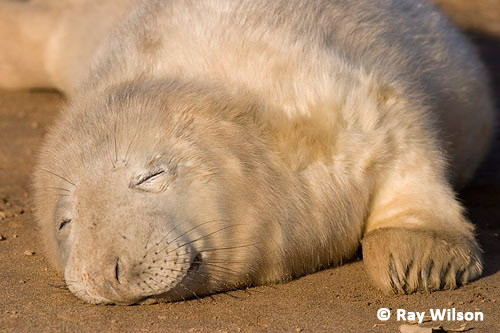
Grey Seals congregate on breeding beaches, such as at Donna Nook, in the autumn each year to give birth. The pups are born with a covering of white fur, or lanugo, which is shed after 2-3 weeks. The mother's milk is extremely rich, containing over 53% fat, enabling the pups to gain body weight very quickly (about 1.8kg per day).
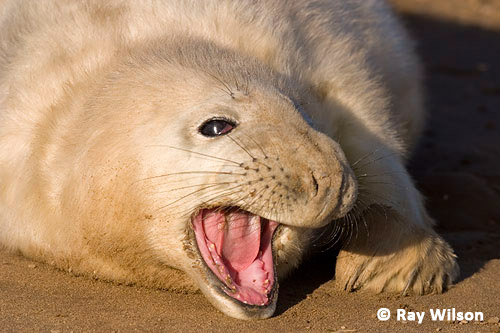
It is widespread and common in most of the wetland areas of South America, and is generally found in small family groups of about 20 individuals.
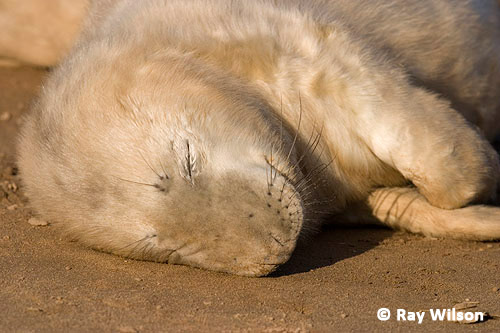
Although they are suberbly adapted for an aquatic lifestyle (are excellent swimmers with eyes and nostrils on the top of their heads allowing them to breathe and see while almost completely submerged), Capybaras use water primarily as a place of refuge with most of their normal daily activity taking place on land.
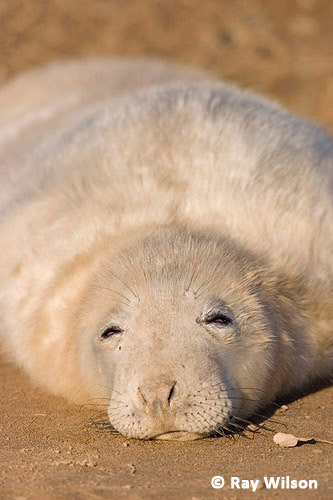
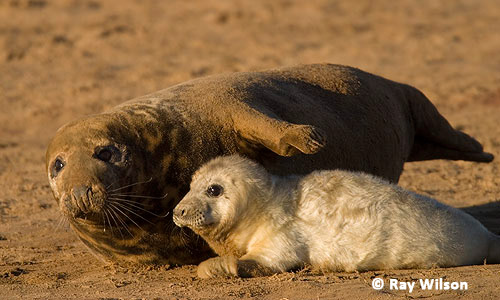
Mating usually takes place about 3 weeks after the female has given birth, and until then the females vigourously attack any male they consider is getting too close.
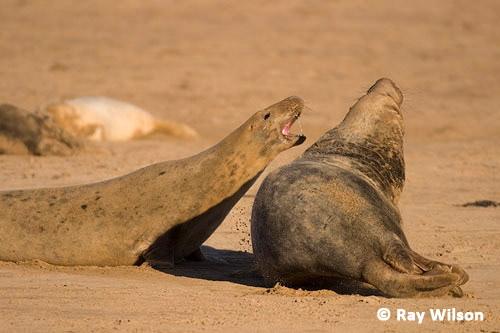
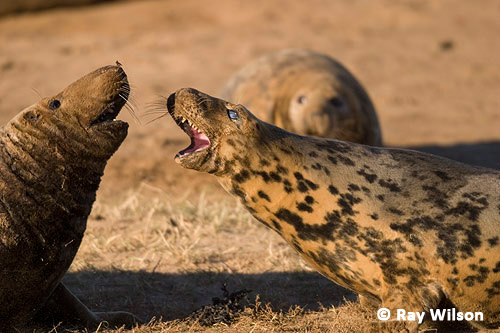
The females also spend a lot of time fighting amongst themselves...
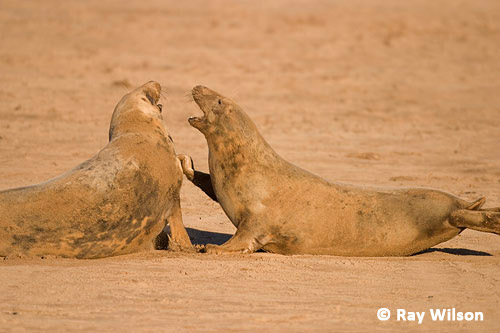
A large proportion of the seals at Donna Nook have a browish colour which is not completely due to staining from the sand. The population a bit further north on the Farne Islands show a much more typical colouration.
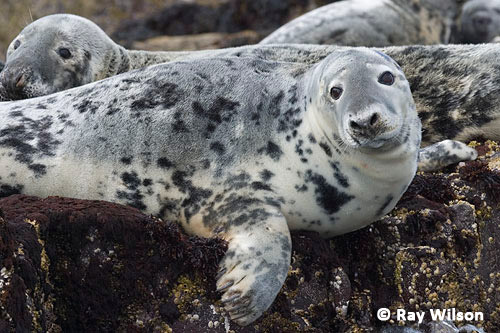
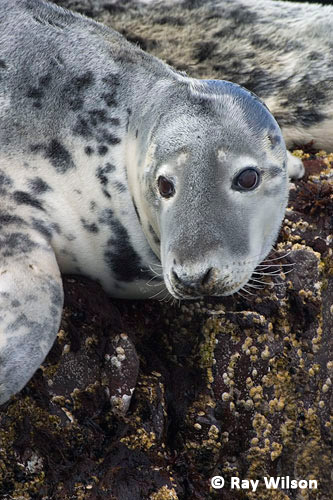
More photos of Grey Seals can be found on the November 2007 Diary page
Ray Wilson owns the copyright of all images on this site.
They may not be used or copied in any form without prior written permission.
raywilsonphotography@googlemail.com